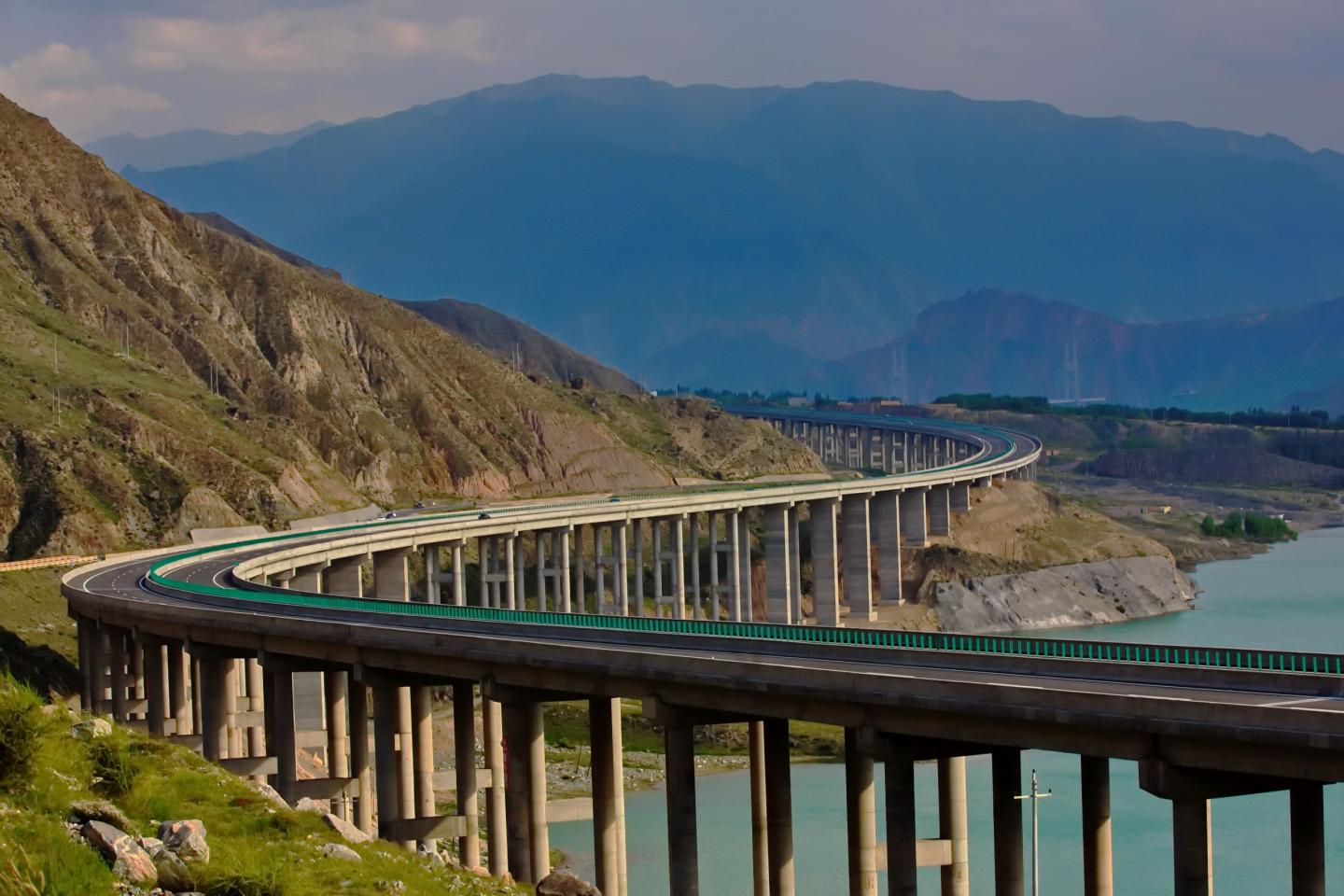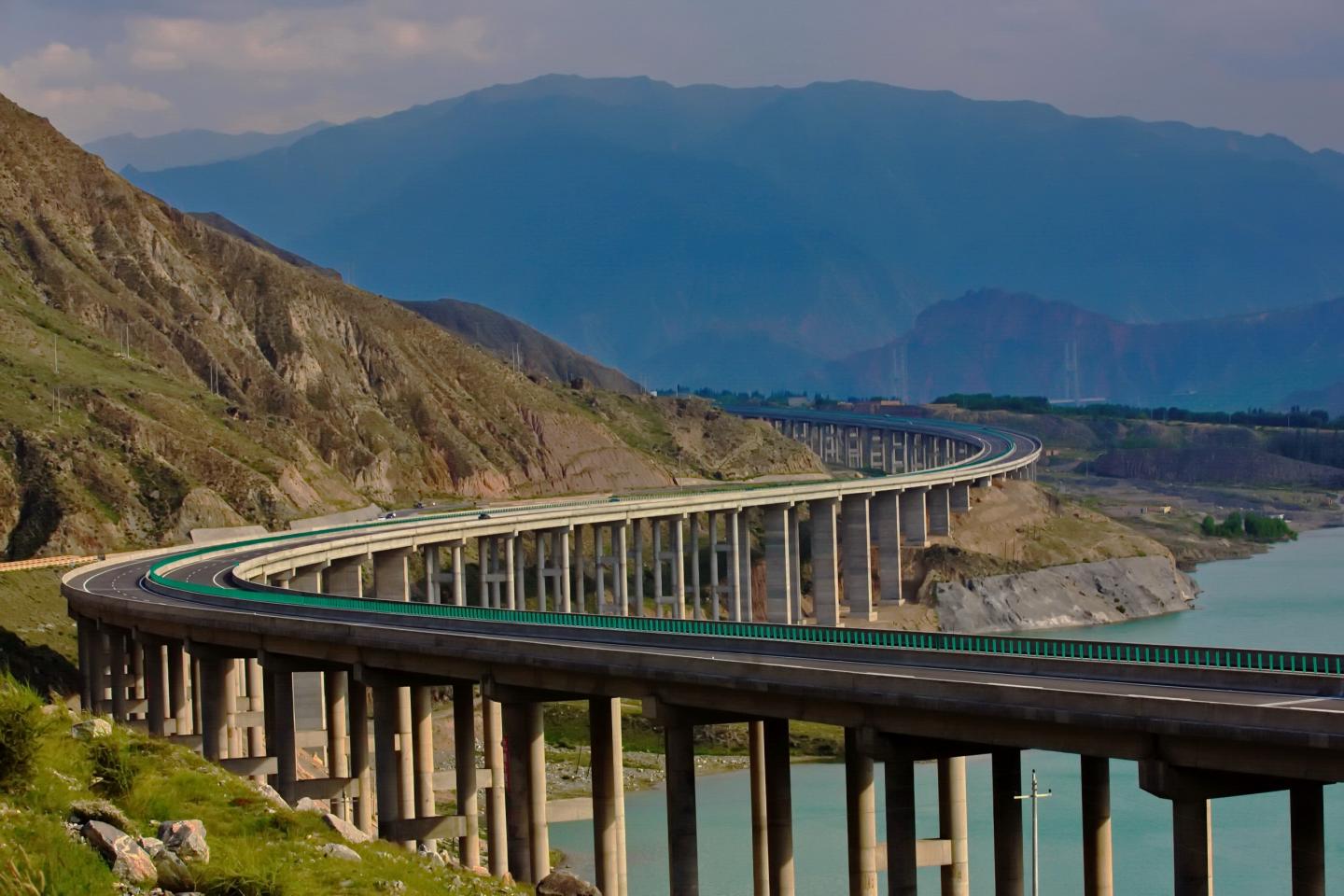
Credit: Jianchu Xu & Biaoyun Huai
Conservation scientists have used layers of data on biodiversity, climate, transport and crop yields to construct a color-coded mapping system that shows where new road-building projects should go to be most beneficial for food production at the same time as being least destructive to the environment.
Researchers from the University of Cambridge, UK, the Kunming Institute of Botany and the World Agroforestry Centre in China say their study, publishing on December 15th, 2016 in PLOS Biology, is an attempt to explore a more "conciliatory approach" in the hope of starting fruitful discussions between developers and conservation experts.
The hope is that this "trade-off" strategy might guide governments, investors and developers to focus on road expansions that make the most difference for current agricultural areas, rather than projects that threaten to open up significant natural habitats for conversion to farmland.
As a proof of concept, scientists applied their technique to a specific sub-region: the Greater Mekong in Southeast Asia – one of the most biologically important regions in the world, and a place that has lost almost a third of its tropical forest since the 1970s.
They found that a number of current road proposals in Vietnam, Laos, Myanmar and Cambodia could destroy a wide swath of habitat while providing little benefit for populations and food security. They also found areas where new roads could increase food production and connectivity with limited environmental cost.
They have called on organisations such as the newly established Asian Infrastructure Investment Bank as well as Asian Development Bank to use such analyses when considering investment in future road expansion projects in the Mekong region – an area undergoing rapid development.
"It is estimated that by 2050 we will build 25 million km of new road lanes, the majority of which will be in the developing world," says Andrew Balmford, Professor of Conservation Science at Cambridge.
"Conservationists can appear to oppose nearly all new infrastructure, while developers and their financial backers are often fairly mute on the environmental impact of their proposals. This can lead to a breakdown in communication."
"The Mekong region is home to some of the world's most valuable tropical forests. It's also a region in which a lot of roads are going to be built, and blanket opposition by the conservation community is unlikely to stop this," says Jianchu Xu, a professor at the Kunming Institute of Botany in China and regional coordinator for the World Agroforestry Centre, East and Central Asia Regional Office.
"Studies like ours help pinpoint the projects we should oppose most loudly, while transparently showing the reasons why and providing alternatives where environmental costs are lower and development benefits are greater. Conservationists need to be active voices in infrastructure development, and I think these approaches have the potential to change the tone of the conversation," says Prof Xu. "If new roads are deployed strategically, and deliberately target already-cleared areas with poor transport connectivity, this could attract agricultural growth that might otherwise spread elsewhere."
For Balmford, this is perhaps the crux of the argument, and something he has long been vocal about: "By increasing the crop yield of current agricultural networks, there is hope that food needs can be met while containing the expansion of farming and so sparing natural habitats from destruction. The location of infrastructure, and roads in particular, will play a major role in this."
However, the researchers caution that the channeling of roads into less damaging, more rewarding areas will have to go hand-in-hand with strengthening protection for globally significant habitats such as the remaining forests of the Mekong.
###
In your coverage please use this URL to provide access to the freely available article in PLOS Biology: http://dx.plos.org/10.1371/journal.pbio.2000266
Citation: Balmford A, Chen H, Phalan B, Wang M, O'Connell C, Tayleur C, et al. (2016) Getting Road Expansion on the Right Track: A Framework for Smart Infrastructure Planning in the Mekong. PLoS Biol 14(12): e2000266. doi:10.1371/journal.pbio.2000266
Funding: Chinese Academy of Sciences' Frontier Science Key Project (grant number QYZDY-SSW-SMC014). Received by JX. The funder had no role in study design, data collection and analysis, decision to publish, or preparation of the manuscript. The Federal Ministry for Economic Cooperation and Development, Germany (grant number #13.1432.7-001.00). Received by JX. The funder had no role in study design, data collection and analysis, decision to publish, or preparation of the manuscript.
Competing Interests: The authors have declared that no competing interests exist.
Media Contact
Xu Jianchu
[email protected]
############
Story Source: Materials provided by Scienmag





